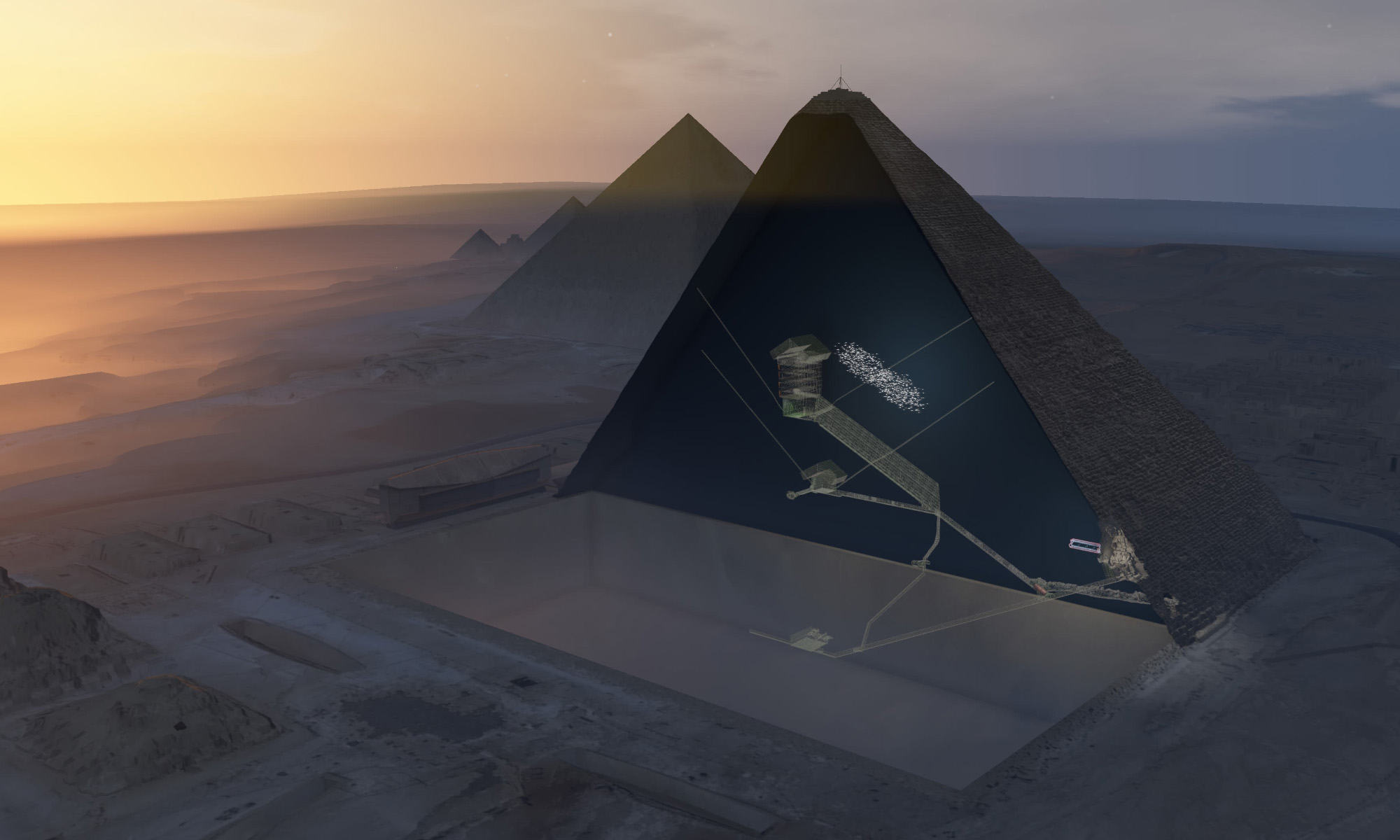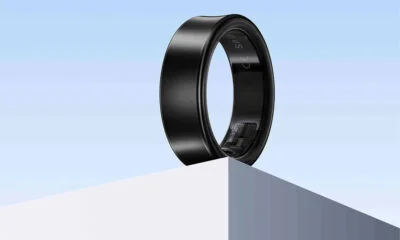News
Cosmic Rays Map Secret Corridor In Egypt’s Great Pyramid
The nine-meter shaft could reveal more on the construction of the pyramids.

A recent discovery in Egypt’s Great Pyramid of Giza could reveal more about the construction of the world-famous landmark, according to a team of scientists from the “Scan Pyramids” project backed by the Egyptian Tourism Ministry of Antiquities.
The team used a non-destructive technique known as cosmic-ray muon radiography to scan a gabled limestone structure, discovering a nine-meter hidden corridor. The shaft is situated above the main entrance to Khufu’s Pyramid, one of the most significant archaeological monuments in the world and a site that still holds countless mysteries.
Also Read: Saudi Film Commission To Explore AI In The Movie Industry
The Scan Pyramids team has been working on the project since 2015, using infrared thermography, 3D simulations, and endoscope cameras to probe the ancient burial structure. Scientists reported several discoveries in the Great Pyramid of Giza five years ago, and the ongoing scans are helping to better understand the function and architectural makeup of the 5,000-year-old structure.
News
1,000 Drones Light The Dubai Sky For AC Milan Celebration
Cyberdrone’s groundbreaking display marked 125 years of AC Milan football club and the 1st-year anniversary of Casa Milan Dubai.

Cyberdrone, a leading UAV display company based in Dubai, put on a breathtaking drone light show on Monday to honor two significant football milestones: AC Milan’s 125th anniversary and the one-year anniversary of Casa Milan Dubai.
The spectacle involved 1,000 drones working in perfect harmony to project AC Milan’s iconic imagery against the city’s night sky. Highlights included the UAVs synchronizing to form the club’s iconic crest, the signature red and black jersey, and a special emblem marking its 125th year. The intricate performance demanded meticulous planning, not just in terms of choreography, but also in dealing with the necessary permits and logistics.

“Our goal was to spotlight AC Milan’s legacy through a stunning visual narrative,” explained Mohamed Munjed Abdulla, Director of Sales at Cyberdrone. “We celebrated the club’s history, its Dubai milestone, and the universal love for football. The show also enhanced AC Milan’s regional presence, growing its fanbase through a cutting-edge, memorable experience. Drone shows are unparalleled in leaving lasting impressions, making them perfect for driving partnerships and growth”.
Also Read: Joby Begins Construction Of Dubai’s First Vertiport For Air Taxis
Greta Nardeschi, AC Milan’s Regional Director for MENA, echoed the sentiment, adding: “Collaborating with Cyberdrone for this 1,000-drone performance allowed us to connect with our fans in innovative ways. It gave us a unique opportunity to surprise and inspire audiences while elevating our Club’s visibility and that of our partners. Cyberdrone truly helped us take AC Milan to new heights”.
This groundbreaking drone display sets a new benchmark for the Middle East’s sports sector, which already contributes around $2.4 billion annually to Dubai’s GDP alone. Sporting events also generate $1.76 billion in revenues across the region, while the MENA’s entertainment sector, valued at $41.13 billion, is growing at 9.41% annually, driven by rapid technological advancements.
-

 News2 weeks ago
News2 weeks agoGalaxy Ring 2 May Launch Early As Apple Prepares Competing Device
-

 News2 weeks ago
News2 weeks agoGoogle To Launch AI Hub In Saudi Arabia, Aiming For $71B GDP Boost
-

 News1 week ago
News1 week agoPopcorn AI Raises $500,000 For “Conversational eCommerce”
-

 News1 week ago
News1 week agoJoby Begins Construction Of Dubai’s First Vertiport For Air Taxis

















